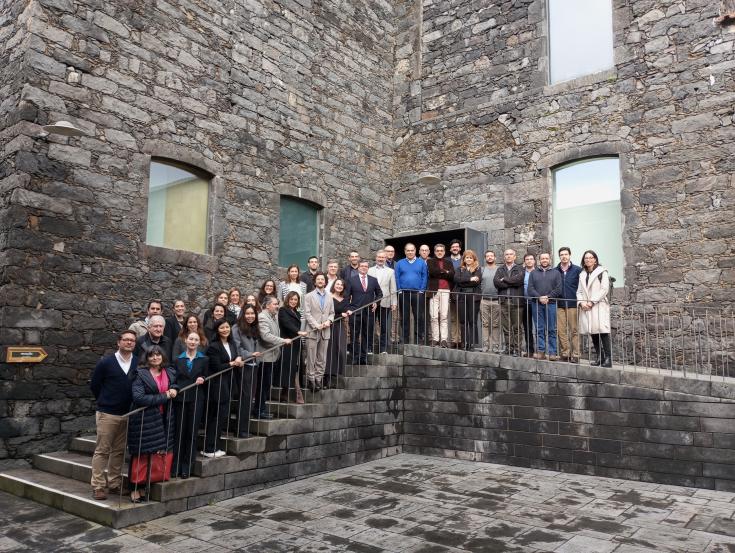Challenge-driven innovation to promote university-industry collaboration

The Policy Learning Platform conducted a peer review for the Autonomous Region of the Azores, Portugal, held on 30-31 January 2024. The Azores government sought inspiration to promote challenge-driven innovation policies for university-industry collaboration.
The Azores, consisting of 9 islands, presents a unique insular archipelago context with inherent challenges and opportunities. University-industry collaboration has faced fragmentation, resulting in a lack of understanding between knowledge activities from universities and businesses. The Azores government aims to adopt a challenge-driven policy approach, supporting the design and implementation of regional missions to address societal challenges.
Missions are measurable, ambitious, and time-bound targets addressing complex issues like climate change through purpose-driven, market-shaping approaches. The public sector actively convenes and coordinates actors around complex, cross-sectoral issues that individual actors cannot resolve independently. Achieving carbon neutrality by 2030 exemplifies a mission-oriented innovation approach to formulating climate goals (The OECD Mission Action Lab).
Discover our related policy briefs

University-industry collaboration
Find out in this policy brief why university-industry collaboration is a key component of the regional innovation policy-mix. Successful exploitation of research and development results is fundamental for regional competitiveness.
Regional missions
Explore five policy recommendations in this policy brief, deriving from the experience of Interreg Europe projects, that inspire policymakers to better design and deliver challenge-driven innovation policies.In collaboration with Marc Pattinson and Arnault Morisson from the Policy Learning Platform, six accomplished peers participated in the review:
- Balzhan Orazbayeva, University-Industry Innovation Network (UIIN), the Netherlands
- Beata Kviatek, Centre of Expertise Energy / Energy Transition Centre ENTRANCE of Hanze University of Applied Sciences Groningen, the Netherlands
- Christine Chang, Helsinki-Uusimaa Regional Council, Finland
- Luisa Henriques, Foundation for Science and Technology, Lisbon and Tagus Valley, Portugal
- Markus Dettenhofer, Czech University of Life Sciences Prague, Czech Republic
- Ricard Esparza Masana, Autonomous University of Barcelona, Catalunya, Spain.
These peers shared their experiences and provided tailored policy recommendations to address the challenges faced by the Autonomous Region of the Azores. Their insights, know-how, and practical suggestions are invaluable for solving the presented challenges.
Define a knowledge roadmap with a mission-oriented approach on different levels—street, village, city, island(s), and mini-missions. Experiment with policies involving university-industry collaboration, incorporating action plans and regular follow-ups (see for example the good practice Food Vision 2030 in Ireland).
Connect with other universities and research institutes (mainland, European, and international—United States and Canada) to enhance the visibility of Azores resources and achieve critical mass in research areas aligned with S3 priorities. This can include joint courses, exchanges, field trips, and attracting research teams or branch campuses (see good practice from the Interreg Europe project Islands of Innovation, Small Craft Competence Centre of Tallinn University of Technology in Kuressaare, Estonia).
Read more about these and other recommendations in the follow-up report, attached to this article.
Discover our related good practices

Food Vision 2030: Ireland’s integrated systems approach for a sustainable agri-food sector
Food Vision 2030 is a stakeholder-led, mission-oriented strategy which recognises the interconnectedness of policies for food, health, climate and environment.

Small Craft Competence Centre of Tallinn University of Technology in Kuressaare

Peer review publication
Find more information on the methodology and experiences of previous beneficiaries in our publication.

Apply for a peer review
Start your peer review application process today and find solutions to your policy challenge with our expert and peers!
